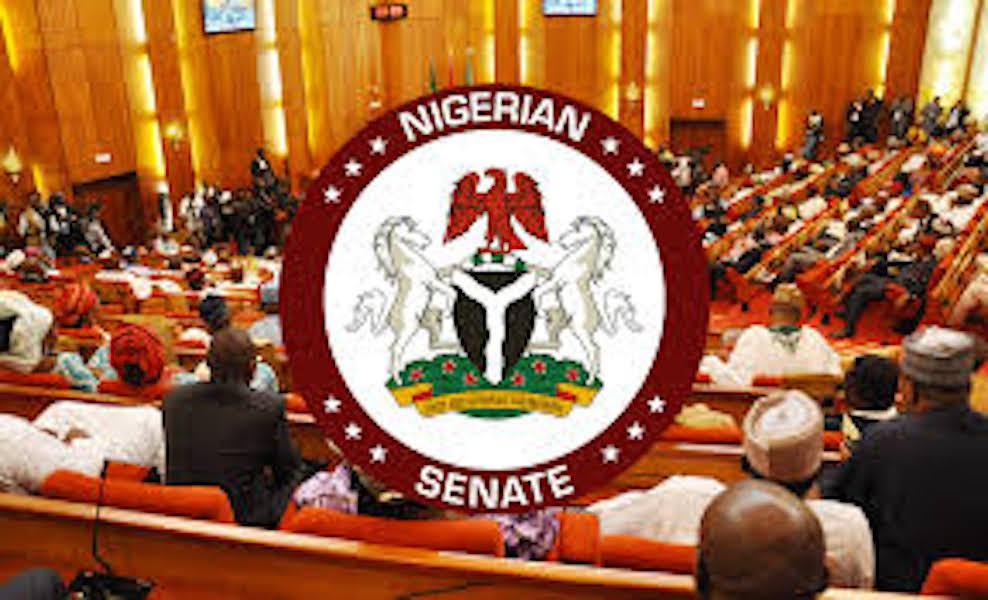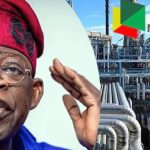6,721 concerned Nigerians, including the Socio-Economic Rights and Accountability Project (SERAP), BudgIT and Enough is Enough (EiE), has taken legal action at the Federal High Court, Ikoyi, Lagos against the ninth Senate over plan to spend N5.550 billion on vehicles for its principal officers.
In the lawsuit filed over the weekend by Kolawole Oluwadare, the plaintiffs urged the court to restrain the National Assembly (NASS) Service Commission from paying N5.550 billion budgeted for purchase of luxury cars for principal members of the ninth Senate, and to restrain the Senate from collecting the money until the downward review of the amount proposed by the Senate.
The plaintiffs argued that spending “such a huge sum on luxury cars for the lawmakers was unjust and unfair, as it negates the constitutional oath of office made by members to perform their functions in the interest of the well-being and prosperity of Nigeria and its citizens, as contained in Seventh Schedule of the 1999 Constitution (as amended).”
They also contended that the proposed spending by the ninth Senate raises pertinent questions, including “what is the economic value and contribution of the vehicles sought to be purchased to the grand scheme of Nigeria’s economy? What are the parameters used the interest of the well-being and prosperity of Nigeria and its citizens as contained in the Seventh Schedule of the 1999 Nigerian Constitution (as amended) to arrive at cost efficiency and value for money in the decision to purchase the vehicles? Where are the vehicles purchased by the eighth Senate?”
The applicants noted: “The failure or refusal by the Senate to comply with legal and constitutional provisions is nothing but an act of arbitrariness. The money could be better allocated to more important sectors of the National Assembly expenditure like constituency projects and scholarships.”
The 6,721 concerned Nigerians who joined the suit marked FHC/L/CS/1511/2019, are co-plaintiffs with SERAP, BudgIT and EiE include: Bring Back Our Girls (BBOG) co-conveners, Oby Ezekwesili and Aisha Yesufu; Jibrin Ibrahim; Edetaen Ojo; Abiola Akiyode-Afolabi, and Deji Adeyanju.
No date has, however, been fixed for hearing. But the lawsuit partly reads:
“A public officer shall not put himself in a position where his personal interest conflicts with his official duties. But the plan to spend N5.550 billion to buy vehicles for principal members of the Senate is a textbook case of a conflict of their personal interests with national interest of fiscal efficiency – a conflict eventually resolved in favour of personal and self-interest.”
“Members of the National Assembly as public officials form a very tiny percentage of about 200 million Nigerians. It is public knowledge and judicially noticed that members of the Senate are still eligible to collect huge sums of money as monthly allowances and severance pay on conclusion of their respective terms at the National Assembly.”
“It is thus rational that this matter is presently generating a lot of public concern and many Nigerians are now calling for a review of the sum proposed and budgeted for vehicles for members. In the face of glaring facts about Nigeria’s dire economic position vis-a-vis the scant allocations to critical sectors of the nation, we can only pray the Court to do substantive justice by granting our reliefs sought.”
“There is real urgent need to assign, hear and determine this matter expeditiously. The well-being and prosperity of Nigeria requires commitment and sacrifice by all and sundry. However, the plan to spend N5.550 Billion [amounting to 6.4% of Nasarawa State budget] is anything but a commitment to pursue the interest, well-being and prosperity of Nigeria and its citizens.”
“We urge the court to grant the plaintiffs’ reliefs by stopping the spending of N5.550 billion on luxury cars by the Senate and compelling the Senate to undertake a downward review of the sum proposed and budgeted, consistent with the provisions of section 57[4] of the Public Procurement Act 2007. Unless the reliefs sought are granted, the Senate will continue to benefit from the breach of the law, and at the expense of millions of Nigerians living in poverty.”
The plaintiffs want the court to determine: “Whether the plan to spend N5.550 billion to buy vehicles for principal members of the ninth Senate is not in breach of Section 57[4] of the Public Procurement Act 2007, Paragraph 1 of Code of Conduct for Public Officers [Fifth Schedule Part 1] of the Constitution of the Federal Republic of Nigeria 1999 [as amended] and Oath of office [Seventh Schedule] of the Constitution of the Federal Republic of Nigeria 1999”
The plaintiffs, therefore, are seeking the following reliefs from the court:
1. A DECLARATION that the sum of N5.550 billion proposed and budgeted for purchase of vehicles for principal members of Senate [National Assembly] is in breach of Section 57[4] of the Public Procurement Act 2007, Paragraph 1, Code of Conduct for Public Officers [Fifth Schedule Part 1] of the Constitution of the Federal Republic of Nigeria 1999 and Oath of Office [Seventh Schedule] of the Constitution of the Federal Republic of Nigeria 1999
2. AN ORDER compelling the ninth Senate to undertake a downward review of the amount proposed and budgeted for purchase of vehicles for principal members of the 1st Defendant in compliance with Section 57[4] of the Public Procurement Act 2007
3. AN ORDER restraining, preventing and stopping the National Assembly Service Commission from paying out or releasing the sum of N5.550 billion proposed, earmarked and budgeted for purchase of vehicles for principal members of Senate [National Assembly] until the downward review of the amount proposed by the ninth Senate
4. AN ORDER restraining, preventing and stopping all members of the Senate from collecting or demanding the sum of N5.550 billion proposed and budgeted for purchase of vehicles for principal members of Senate until the downward review of the amount proposed for purchase of the vehicles
5. ANY ORDER(S) that the Honourable Court may deem fit to make in the circumstance of this suit.
No date has been fixed for the hearing of the suit.




![Kevin Hart, 2 Others Involved In Deadly Car Crash, Suffers Major Back Injury [Photo] 3 Kevin Hart, 2 Others Involved In Deadly Car Crash, Suffers Major Back Injury [Photo] 3](https://media.kanyidaily.com/2019/09/02080504/Kevin-Hart-In-Serious-Car-Accident...Suffers-Major-Back-Injuries-150x150.jpg)
!["She Killed It" – Peter Okoye Reacts As Wife, Lola Omotayo Twerks On Terry Apala [Video] 5 "She Killed It" – Peter Okoye Reacts As Wife, Lola Omotayo Twerks On Terry Apala [VIdeo]](https://media.kanyidaily.com/2024/12/31054149/Peter-Okoye-wife-Terry-Apala-150x150.jpg)
![Nobody Will Go To Catholic Church If They Encourages Bible Reading – Abel Damina [Video] 7 Nobody Will Go To Catholic Church If They Encourages Bible Reading – Abel Damina [Video]](https://media.kanyidaily.com/2024/12/30182140/Abel-Damina-150x150.jpeg)




![Rita Edochie Throws Subtle Shade At Yul Edochie And Judy Austin Over Son’s Range Rover Gift [Video] 17 Rita Edochie Throws Subtle Shade At Yul Edochie And Judy Austin Over Son’s Range Rover Gift [Video]](https://media.kanyidaily.com/2024/12/30112312/Rita-Edochie-shades-Yul-Edochie-and-Judy-Austin-1-150x150.jpg)

![Judy Austin’s Son Gifted A Range Rover Shortly After May Edochie Acquired One [Video] 21 Judy Austin’s Son Gifted A Range Rover Shortly After May Edochie Acquired One [Video]](https://media.kanyidaily.com/2024/12/30062833/Judy-Austins-son-gifted-Range-Rover-150x150.jpg)
![VeryDarkMan Recovers ₦78m In NGO Stolen Funds, Says Accomplice Escaped To Ghana [Video] 23 VeryDarkMan Recovers ₦78m NGO Stolen Funds, Says Accomplice Escaped To Ghana [Video]](https://media.kanyidaily.com/2024/12/30060057/VeryDarkMan-1-150x150.jpg)

